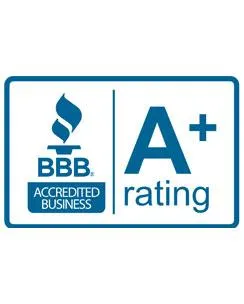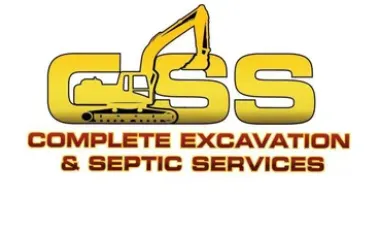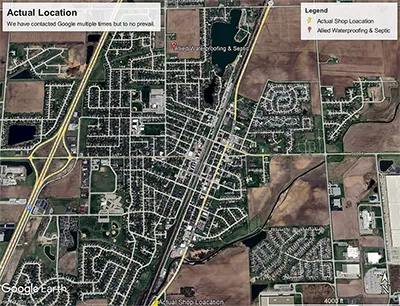
How Household Chemicals Impact Your Septic System Health
Your home’s plumbing may seem simple, but your septic system is a hidden world below the surface. It works tirelessly to break down waste. Certain household chemicals can disrupt this delicate process.
Choosing cleaning products wisely financially benefits you and helps the environment. Let’s explore which household chemicals are septic-safe and which ones to avoid.
How Your Septic System Works
Before discussing chemical effects, let’s review how your system operates. It has two main parts: the septic tank and the drain field. Wastewater flows from your home into the septic tank.
Solids settle at the bottom as sludge, while oils and grease float to the top as scum. The remaining wastewater flows to the drain field. The soil in the drain field further treats the wastewater, removing bacteria, viruses, and nutrients.
The Bacteria Balancing Act
Beneficial bacteria are essential for a healthy septic system. They constantly break down the solids in your septic tank.
This natural process is vital. Harmful household chemicals can disrupt this delicate balance, killing essential bacteria. Damaged bacteria negatively impact the septic system and local environment.
Regular septic tank inspections by professionals are recommended. To further maintain your septic system health, learn more about making your septic system more eco-friendly.
Household Chemicals and Septic System Interference
Some common household chemicals can negatively impact your septic system. Knowing which products to use (or not use) and following best septic practices are good for your system’s long-term health. Below is a list of specific cleaning solutions and why it’s better to avoid using each of them. Using the wrong cleaning chemicals and household products can seriously impact a septic system’s delicate balance.
Bleach and Disinfectants
Bleach kills bacteria, including the beneficial ones in your septic tank. This hinders waste processing.
Regular septic pumping becomes more crucial when using bleach. Overuse of chlorine bleach can seriously disrupt your septic system, necessitating additional care. Learn more about the effects of bleach and disinfectants on your septic system.
Drain Cleaners
Drain cleaners contain powerful chemicals, although their negative impact on septic systems is sometimes overstated.
Exercise caution and avoid overuse when choosing products, especially chlorine bleach. Too much of the wrong products will make costly drain maintenance and potential septic replacement necessary far more quickly than proper routine maintenance of septic tanks would otherwise require.
Harsh Soaps and Detergents
Harsh soaps and detergents often contain phosphates. Phosphates stimulate excessive algae growth, which can disrupt the bacterial balance in your septic system.
This leads to a thick scum layer, hindering waste processing. Over time, this can necessitate costly septic replacement.
Septic-Safe Alternatives
Several alternatives are available that are gentle on your septic system. These cleaning alternatives are often plant-based rather than containing potentially harmful chemicals. This not only protects your system’s natural processes but also keeps dangerous cleaning agents out of groundwater supplies and away from local ecosystems.
Embrace Biodegradable Cleaners
Biodegradable cleaners effectively clean your home without harming your septic system. These septic-safe products maintain a balanced bacterial environment.
This supports consistent waste processing and prevents drain issues. Look for environmentally sound alternatives and check labels closely to ensure a given product will not have negative consequences or create any other potential issues.
Natural Cleaning Solutions
Natural cleaners, like baking soda and vinegar, are effective and septic-friendly. They break down waste while maintaining a healthy bacterial colony.
Safe Chemical Disposal
Sometimes, you may need products that aren’t septic-safe. Dispose of harsh chemicals properly, and always store hazardous chemicals safely.
This reduces household chemical hazards. It also protects your septic system, local waterways, and overall public health.
Improper disposal can contaminate water systems. Even small quantities of harmful substances can accumulate over time, impacting everyone.
Hazardous Waste Collection: Many communities offer hazardous waste collection for safe disposal of solvents, automotive fluids, and paints.
Check Product Instructions/Labels: Always consult product labels for specific disposal guidelines.
Avoid Flushing Medications: Never flush medications down the toilet, as this can contaminate water supplies.
Check Local Rules before Chemical Disposal: Follow local regulations for proper disposal. Contact your local sanitation or environmental agency for clarification and learn how local and regional ordinances vary, and stay up-to-date with best practices for protecting the environment and ensuring public safety.
Maintaining Your Septic System
Regular septic tank inspections are crucial. Pump and clean the tank as needed to prevent backups.
Adhere to local regulations to ensure your system complies with current standards. This might require upgrades, but it prevents future problems. Keeping track of changes is easy thanks to publicly accessible data, but many states have information about best septic maintenance practices as well. Contact the authorities to get details and information, which are often conveniently available, on avoiding negative impact on your local ecosystem.
By avoiding harmful household chemicals and using septic-safe products, you maintain a healthy wastewater system. These choices benefit everyone. Learn more about how to reduce harmful chemical use in and around your house and minimize potential hazards while saving money over time.
Conclusion
Household chemicals have a significant impact on septic systems and the environment. Simple changes at home can make a big difference collectively. Responsible chemical use and disposal protect our shared water resources.
Every small step contributes to a healthier community. Flushing medications or pouring harmful products down the drain contaminates water systems, making clean, drinkable water more costly for everyone. Instead, properly dispose of any toxins and use eco-friendly alternatives wherever possible. Learn how these small steps multiply exponentially to create a better future.




Hours:
Mon - Fri 9:00 am - 5:00 pm
Extended hours by appointment only.






